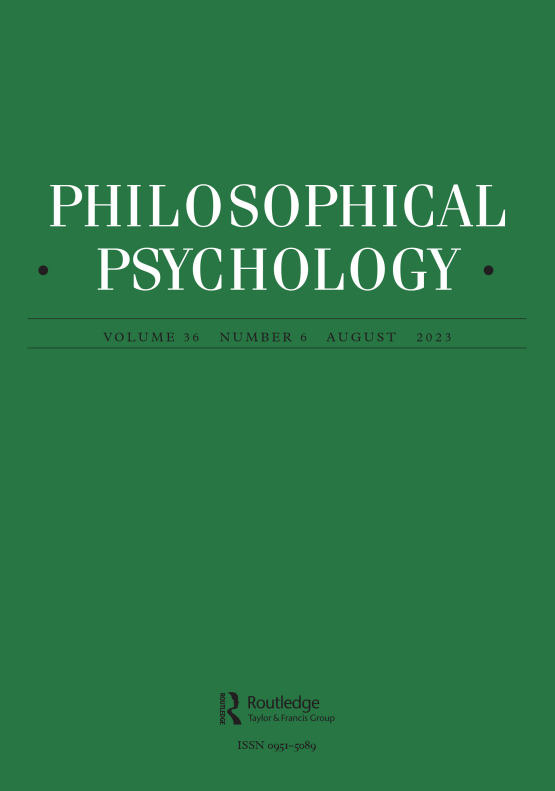Submit a Manuscript to the Journal
Philosophical Psychology
For a Special Issue on
Understanding oneself through others
Manuscript deadline
31 March 2025

Special Issue Editor(s)
Kathleen Murphy-Hollies,
University of Birmingham
[email protected]
Eleanor Byrne,
University of Birmingham
[email protected]
Understanding oneself through others
Research within distributed cognition and affectivity emphasises the essential role of other people in realising various cognitive and affective states. Similarly, work on epistemic injustice in healthcare has drawn attention to the influence of other people on our practices of cultivating, sharing, and communicating knowledge about our bodies. In this special issue, we want to explore interesting possibilities for future research at the intersection of these research areas.
Some researchers have begun to look at the “dark side” of distributed cognition, scaffolding, and other distributed cognitive and affective practices to develop more socio-politically situated analyses. Following this turn, we seek to investigate how we use other people to understand our own experiences of ill-health, and how such dynamics may relate to instances of epistemic justice or injustice.
We invite submissions on topics such as, but not limited to, the following:
- The role of other people for self-understanding in the context of health and illness
- The distributed nature of health and illness narratives
- The phenomenology of connection and felt-understanding
- Ways of enhancing or undermining sense of agency in the context of health
We invite contributors to interpret these categories broadly and explore new angles for research. We also welcome submissions concerning experiences which are not necessarily pathological (such as grief). We are interested in epistemic injustice, but also in concepts adjacent to epistemic injustice, such as affective injustice and gaslighting.
Looking to Publish your Research?
Find out how to publish your research open access with Taylor & Francis Group.
Choose open accessSubmission Instructions
- Only original research articles will be considered.
- The word limit for submitted paper is 8,000 words.
- The editors will evaluate manuscripts before sending them for external peer review and may take advice from experts to reach a decision. Only the manuscripts judged as suitable for publication by two independent reviewers will be accepted for publication.
- Papers will be published online upon acceptance, without delay, and will appear in print when all the contributions to the special issue are ready.
- Please select "Understanding oneself through others" in the Special Issues drop-down menu when submitting your paper via ScholarOne.
- We warmly encourage submissions by authors who belong to traditionally underrepresented groups in academia and whose native language is not English.